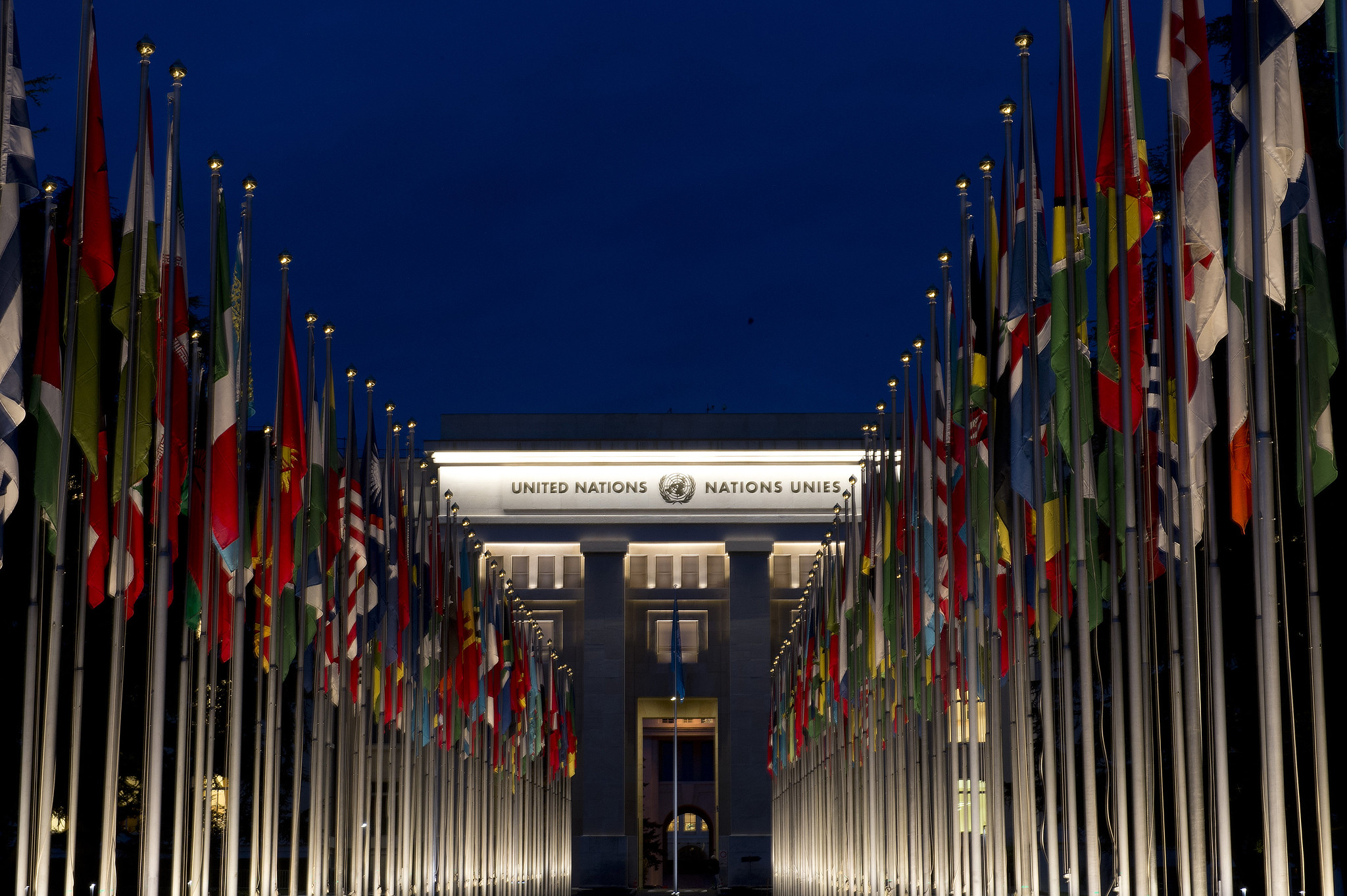September 29, 2022

Palais des Nations by night © Jean-Marc Ferré, licensed under CC BY-NC-ND 2.0.
On September 29, 2022, the United Nations (UN) Assistant Secretary-General for Human Rights, presented the annual report of the UN Secretary-General on intimidation and reprisals against those cooperating with the UN, its representatives and mechanisms. The report highlights allegations of acts of intimidation and reprisals committed during the reporting period, – i.e., from May 1, 2021, and April 30, 2022 – as well as updates on acts of reprisals documented in previous reports.
Reprisals in the Middle East and North Africa (MENA)
The Secretary General’s 2022 report noted ongoing cases of reprisals committed in 42 countries, including several in the MENA region – including Bahrain, Egypt, Israel, Libya, Morocco, Saudi Arabia, Sudan, the United Arab Emirates (UAE), Palestine, and Yemen. In April 2022, MENA Rights Group submitted a report to the UN Secretary General documenting ongoing cases of intimidation and reprisals against individuals who had cooperated with the UN human rights mechanisms.
Among concerning developments in the MENA region is the targeting of activists by NSO Group’s Pegasus spyware, including in Morocco against Sahrawi activist Aminatou Haidar, by Bahrain against two human rights defenders, Sayed Ahmed Al- Wadaei and Ebtisam Al-Saegh, and lastly by Israel which planted the spyware on the phone of an employee of the Prisoner Support and Human Rights Association Addameer.
Below are some of the cases highlighted in the report:
Djibouti
Already included previous reports, the 2022 report included the case of Kadar Abdi Ibrahim, the head of the Mouvement pour la démocratie et la liberté (MoDEL), whose passport was confiscated by the authorities as a result of his engagement with the Universal Periodic Review of Djibouti in May 2018. Commenting on this allegation, the government responded that Ibrahim “continues his anti-constitutional and illegal activities, that MoDEL receives funds from abroad and has connections with extremist movements, and it therefore reserves the right to restrict his movements.”
Egypt
In the case of Egypt, the report highlighted the Egyptian authorities’ use of counter-terrorism and national security legislation to target those cooperating with the UN. In that regard, the report contained updates on the ongoing threats and acts of reprisals being faced by Ahmed Amasha, Ebrahim Metwally Hegazy, Mohamed El-Baqer, Ramy Kamel Saied Salib and Bahey El Din Hassan.
Saudi Arabia
The report also highlighted updates on Saudi Arabia, including on the cases of women’s rights defenders Loujain Al Hathloul and Samar Badawi as well as human rights activists Fawzan al-Harbi and Essa al-Nukheifi. The Saudi government provided a response to the UN Secretary-General, in which it denied that these individuals were subjected to torture, and that they were “not victims of enforced disappearance”, contrary to multiple concurring reports by the victims’ families and human rights organisations.
UAE
The Secretary-General’s report additionally shed light on continued acts of reprisals committed by the authorities of the United Arab Emirates against prominent Emirati human rights defender, Ahmed Mansoor. Following the publication, in July 2021, of a letter he wrote from prison denouncing the human rights abuses he was subjected to, Mansoor, was moved into a smaller and more isolated cell, was denied medical care and remained in solitary confinement.
--
MENA Rights Group will keep monitoring acts of reprisals across the MENA. If you would like to report acts of reprisals and intimidation against individuals and groups engaging with the UN, do not hesitate to contact us so that we can alert the Assistant Secretary-General for Human Rights and the Office of the UN High Commissioner for Human Rights.






